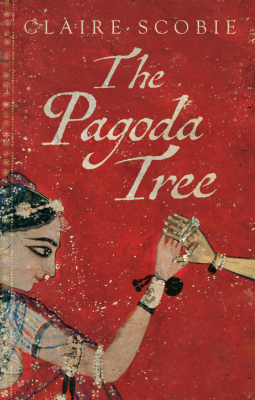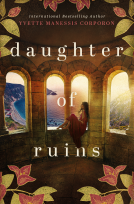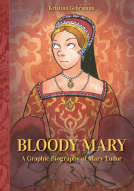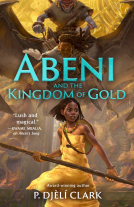
The Pagoda Tree
by Claire Scobie
This title was previously available on NetGalley and is now archived.
Send NetGalley books directly to your Kindle or Kindle app
1
To read on a Kindle or Kindle app, please add kindle@netgalley.com as an approved email address to receive files in your Amazon account. Click here for step-by-step instructions.
2
Also find your Kindle email address within your Amazon account, and enter it here.
Pub Date Jun 01 2017 | Archive Date Jul 31 2017
Description
Tanjore, 1765. Young Maya plays among the towering granite temples of this ancient city in the heart of southern India. Like her mother before her, she is destined to become a devadasi, a dancer for the temple. She is instructed in dance, the mystical arts and lovemaking. It is expected she will be chosen as a courtesan for the prince himself.
But as Maya comes of age, India is on the cusp of change and British dominance has risen to new heights. Far from home, the East India Company is acting like a country in its own right and the British troops are more of a rabble than the King’s army. The prince is losing his power and the city is sliding into war. Maya is forced to flee her ancestral home and heads to the bustling port city of Madras, where East and West collide.
In this new home, Maya captivates all who watch her dance, including Thomas Pearce, an ambitious young Englishman who has travelled to India to make his fortune. But their love is forbidden and comes at enormous cost.
Weaving together the uneasy meeting of two cultures, The Pagoda Tree is a captivating story of love, loss, fate and exile in 18th-century India.
Advance Praise
'A novel to be savoured … Its layering, the unravelling of the story, the subtext of the fortunes made and lost on cotton and silk, the evocative descriptions of saris themselves are all part of [its] tapestry.' - Sydney Morning Herald
'Women’s stories are rarely told in history, nor particularly honoured. The Pagoda Tree offers a powerful, sensual perspective on a time of great transformation in India.' - Sarah Macdonald, author of HOLY COW
'Claire Scobie’s seductive prose and immaculate layering of period detail capture India at her most exotic.' - Susan Kurosawa, The Australian travel editor and author of CORONATION TALKIES
'A rich and enthralling story handled with great skill by someone with a profound understanding of her material.' - David Roach, screenwriter and film director, Beneath Hill 60 and Red Obsession.
Marketing Plan
Previously published in Australia (Penguin), where it was well received and chosen by Good Reading magazine as one of their Best Fiction Reads 2013.
Claire's travel memoir, Last Seen in Lhasa (Random House), won the 2007 Dolman Best Travel Book Award; she runs creative writing workshops at Faber Academy and is a regular guest at international writers’ festivals.
For fans of Amitav Ghosh (The Ibis Trilogy), Elle Newmark (The Sandalwood Tree, The
Book of Unholy Mischief), Dinah Jefferies (The Tea Planter’s Wife) and Rosie Thomas
(The Kashmir Shawl).
Available Editions
| EDITION | Hardcover |
| ISBN | 9781783523719 |
| PRICE | £16.99 (GBP) |
| PAGES | 368 |
Featured Reviews
The Pagoda Tree is by far one of the most beautifully rich & emotional stories I have read in a long while. I am an avid reader of historical fiction, preferably strong woman in history, Myambikia=Mya is without a doubt one of these woman.
This story takes place during a crucial point in India's history as England marches in & tries to conquer the lands. A period of time where the English barge in changing the lives of everyone, when cities fall, traditions are abandoned, cultures looker down upon & a new way of life is shoved down the throats of the people of India.
Mya's story begins in India where from the moment she was born has been groomed to be a 3rd generation- davisada-temple dancer of the Gods. This small community of holy woman spend their lifetime as devout wives to the God Shiva. Their lives are shut away spent in the Holy temples learning the ancient dances, prayers, customs, traditions. As young children they are officially married to Shiva through ancient ceremonies & after they come of age these virtuous woman are sold to the highest bidders & concubines & mistresses of the rich & powerful. Mya was born with the mark of the Godess & has been taken under the wing of the most famous devasida, the Kings own Mistress. Before Mya has a chance to perform infront of the King & be officially introduced into society, the city falls. Mya & her mother flee the holy temple to a northern city where her life is forever changed & her dreams of living at the Royal Palace are scattered into the wind- forever.
We follow the emotional story of this young woman as she battles heartbreak after heartbreak. Always pushing forward with a resilience she must find within herself. She must face the memories of her past life, the family she lost, & she is determined to make a life for herself that she CHOOSES & not one that is chosen for her, as so many woman have to do.
There is so much depth in this book, the details of such a beautiful culture, rich in description from the heat wrenched days to the vibrant colors of the silk saris. I was captivated by the imagery, I closed. Y eyes & could almost smell the incense being lit.
I savoured every last word while reading The Pagoda Tree.
 Annie S, Librarian
Annie S, Librarian
Maya was born to dance. When she dances to tell the stories of the Hindu pantheon, she loses herself and taps into something holy. Unfortunately for Maya, being a devadasi also requires finding a wealthy male patron who will expect certain favors in exchange for financial support. As if this wasn’t complicated enough, in the mid-1700s, the traditional role of the devadasi is being twisted to cater to the men of the East India Company. In Claire Scobie’s The Pagoda Tree, we follow Maya and two East India Men whose lives collide in Tanjore (now Thanjavur) and Madras (now Chennai).
The Pagoda Tree unfolds slowly over more than a decade. We meet Maya when she’s nine years old and about to be dedicated to Shiva as a devadasi in Tanjore. She’s already learned the basic forms of temple dancing, but she still has a long way to go to perfect her training. Meanwhile, Walter has recently arrived in the same city to serve as a chaplain for the soldiers of the East India Company. It isn’t until much later that we meet Thomas, the man who will truly disrupt Maya’s life.
The three characters only bump into each other until the latter third of the book. They meet and talk, of course, but mostly their stories are on separate but thematically parallel tracks until a grown up Maya and Thomas begin a liaison. Until then, we see Maya learn about the less holy aspects of her career. Walter has a similar journey, though he has very little of Maya’s resignation and endurance. Thomas, meanwhile, is on a quest to make his fortune to pay his family’s debts only to suffer repeated setbacks.
I most enjoyed reading about Maya. Despite some clunky dialog with her devadasi guru about Hindu theology, I was fascinated to read about eighteenth century life in southern India. Scobie packs The Pagoda Tree with sensory details, including sound and smell. That said, with Walter and Thomas’s stories, the book feels overstuffed. It isn’t until relatively late in the novel that the three characters really get tangled up in each other’s lives. I understood only then why we needed to see how Walter and Thomas developed their opinions of India and Indians. Still, I wish that The Pagoda Tree was wholly Maya’s story.
I received a free copy of this book from NetGalley for review consideration. This book will be released 1 June 2017.
The historical detail in The Pagoda Tree by Claire Scobie is fascinating and includes much I did not know about devadasis or about British rule in India in the eighteenth century. Maya's character, particularly her introduction as an innocent child, is an engaging one. The strong woman Maya grows into is a sympathetic character. The history scatters the personal story a bit, but an engaging piece of historical fiction nevertheless.
Read my complete review at http://www.memoriesfrombooks.com/2017/08/the-pagoda-tree.html
Reviewed for NetGalley
 Carole H, Reviewer
Carole H, Reviewer
Reading reviews of Claire Scobie's earlier work (by zin ran, someone whose writing I greatly admire) gave me high expectations of this book.
In style It is Reminiscent of The Rice Mother and Memoirs of a Geisha, but much more knowing than those two titles.
The story is immediately engaging and rich enough in detail to allow entry into the worlds of the main characters, however without being told the date of the story in letters by Walter, I would have placed the early part of the tale as relatively modern ( 20th century post war even) rather than the sixteenth century we are advised of.
Expression like as dried up as an old creek and we need local talent jar a little, but of course I have no idea how in that time period cultural speech would be be interpreted so maybe I'm being a little harsh to be thrown by it. Especially as when she gets in her stride, she makes the text sing with lovely descriptive narrative like this ;
Although Maya drove him to distraction by drifting with the birds, he could see their flight in her dance. The swoop of a kestrel as her arm cut the air from left to right; the uncoiling of a swan’s neck in the undulation of her torso; the strut of a maddened peacock when she stamped her feet on the earth.
The Text continues to be very visually descriptive. It is visceral in parts and the brief but nauseating violence is hard to read.
It took a while for me to get into the rhythm of the book but when I did the storyline held my attention. As the story gained pace the historical detail waned as huge gaps in the narrative were hurriedly glossed over allowing two of the main characters to finally meet.
All In all it's a well written story that is engaging and interesting but ultimately quite a shallow read that feels like only the top soil of the subjects experience is explored and many peripheral but interesting characters are left to wither by the wayside.
Readers who liked this book also liked:
Yvette Manessis Corporon
General Fiction (Adult), Historical Fiction, Women's Fiction


















